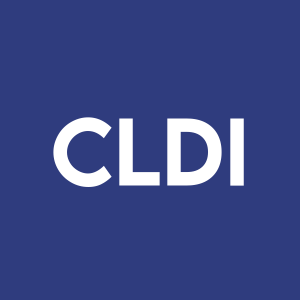Calidi Biotherapeutics Presents New Data on the Mechanisms of Action for Virotherapy-Loaded Stem Cells Used in the Company’s Novel Immunotherapies at the AACR Annual Meeting 2024
- Data supports CLD-101 and CLD-201’s first-in-class use of stem cells to protect and potentiate antitumor virotherapies designed improve antitumor activity in the clinic.
“Calidi’s novel approach to treating cancer has always centered around the stem cell as a means of protecting, delivering, and potentiating our tumor-killing virotherapeutic payloads. We believe this novel approach using allogeneic stem cells differentiates our technology and offers the potential of our platforms, CLD-101 and CLD-201, to serve as universal, off-the-shelf, options for patients needing improved therapeutic outcomes in their treatments for cancer,” said Allan Camaisa, CEO and Chairman of the Board at Calidi Biotherapeutics.
“The data presented at AACR, in close collaboration with our long-standing partners at City of Hope, describes how stem cells may improve anticancer actions of oncolytic viruses, by not only protecting and potentiating virotherapy, but by secreting immunomodulatory molecules into the tumor microenvironment. We are excited to continue research in the field of oncology by better understanding the mechanism of action for Calidi’s lead assets, and their potential treatment for solid tumors,” said Antonio F. Santidrian, Chief Scientific Officer of Calidi Biotherapeutics.
Antitumor virotherapies are capable of selectively eradicating tumor cells without endangering healthy cells in the body. Viruses that enter the body are immediately inactivated by the immune system. Calidi is developing two platforms, CLD-101 and CLD-201, that consist of oncolytic viruses loaded into stem cells, designed to cloak the tumor-killing viruses from the immune system. In the studies presented at AACR, scientists at Calidi Biotherapeutics and City of Hope researched the stem cells secretome transcriptomic of CLD-101 and CLD-201. The transcriptomic analysis showed that immunomodulatory cytokines, and chemokines, are induced following oncolytic virus infection demonstrating a potential immunotherapeutic role of the cells, in addition to the delivery and protection of the oncolytic viruses. Together these findings suggest that the enhanced antitumor actions of Calidi’s therapies are partially due to the alterations in the stem cells’ secretome, reinforcing the potential of the company’s novel approach to treat solid tumors.
Calidi previously announced that its partner, City of Hope, dosed the first patient in a Phase 1 clinical trial evaluating CLD-101 in recurrent high-grade glioma patients. The company expects to report a clinical update in the second quarter of 2024. A previously completed Phase 1 dose escalation clinical trial showed CLD-101 was well-tolerated and demonstrated stimulation of an antitumor immune response. The company expects to start clinical trials with CLD-201 by the end of 2024, subject to the company’s continued ability to raise the capital necessary to fund its clinical development programs.
This poster will be posted to the “Scientific Publications” section of the Calidi Biotherapeutics website following the conclusion of the conference.
About Calidi Biotherapeutics
Calidi Biotherapeutics (NYSE American: CLDI) is a clinical-stage immuno-oncology company with proprietary technology designed to arm the immune system to fight cancer. Calidi’s novel stem cell-based platforms are utilizing potent allogeneic stem cells capable of carrying payloads of oncolytic viruses for use in multiple oncology indications, including high-grade gliomas and solid tumors. Calidi’s clinical stage off-the-shelf, universal cell-based delivery platforms are designed to protect, amplify, and potentiate oncolytic. Calidi’s preclinical off-the-shelf enveloped virotherapies are designed to target disseminated solid tumors. This dual approach can potentially treat, or even prevent, metastatic disease. Calidi Biotherapeutics is headquartered in
Forward-Looking Statements
This press release may contain forward-looking statements for purposes of the “safe harbor” provisions under the United States Private Securities Litigation Reform Act of 1995. Terms such as “anticipates,” “believe,” “continue,” “could,” “estimate,” “expect,” “intends,” “may,” “might,” “outcome,” “plan,” “possible,” “potential,” “predicts,” “project,” “should,” “towards,” “would” as well as similar terms, are forward-looking in nature, but the absence of these words does not mean that a statement is not forward-looking. These forward-looking statements include, but are not limited to, statements concerning upcoming key milestones (including the reporting of interim clinical results and the dosing of patients), planned clinical trials, and statements relating to the safety and efficacy of Calidi’s therapeutic candidates in development. Any forward-looking statements contained in this discussion are based on Calidi’s current expectations and beliefs concerning future developments and their potential effects and are subject to multiple risks and uncertainties that could cause actual results to differ materially and adversely from those set forth or implied in such forward-looking statements. These risks and uncertainties include, but are not limited to, the risk that Calidi is not able to raise sufficient capital to support its current and anticipated clinical trials, the risk that early results of clinical trials do not necessarily predict final results and that one or more of the clinical outcomes may materially change following more comprehensive review of the data, and as more patient data becomes available, the risk that Calidi may not receive FDA approval for some or all of its therapeutic candidates. Other risks and uncertainties are set forth in the section entitled “Risk Factors” and “Cautionary Note Regarding Forward-Looking Statements” in the Company’s Registration Statements filed with the SEC on Form S-4 filed on August 2, 2023, on Form S-1 filed on October 6, 2023, on Form S-1 filed on January 29, 2024, as amended on February 7, 2024, and on Form 10-K filed on March 15, 2024.
View source version on businesswire.com: https://www.businesswire.com/news/home/20240409670360/en/
For Investors:
Stephen Jasper
Gilmartin Group
stephen@gilmartinir.com
For Media:
Stephen Thesing
ir@calidibio.com
Source: Calidi Biotherapeutics, Inc.







